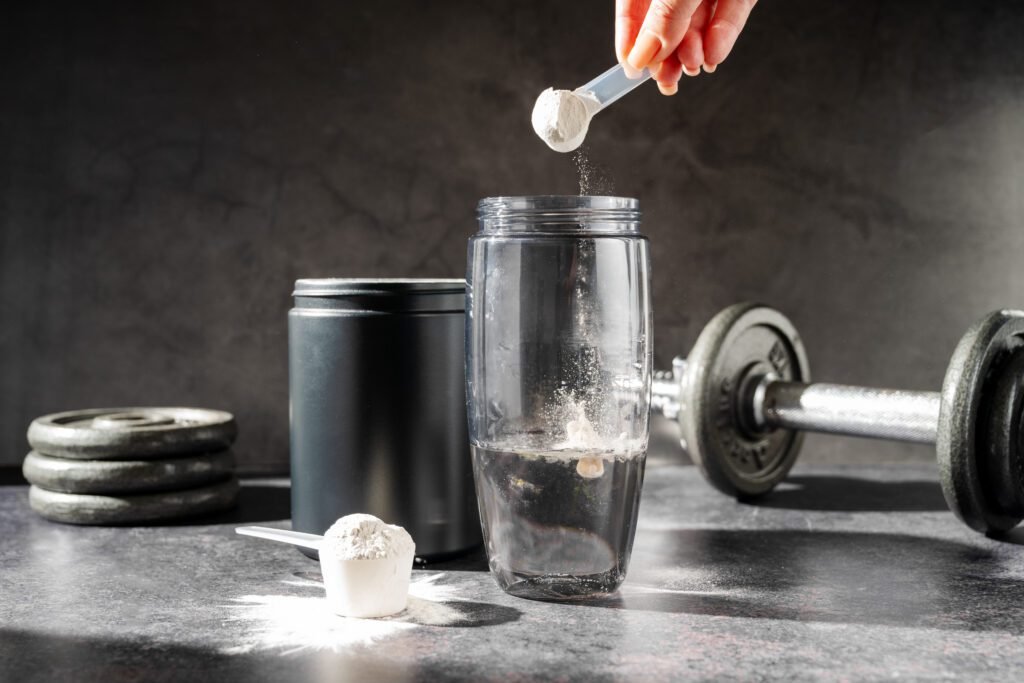The Creatine Comeback: A Supplement for Mind, Muscle, and Longevity
Once confined to the realm of bodybuilders and elite athletes, creatine has recently surged into mainstream health conversations. This shift is fuelled by emerging research highlighting its potential benefits beyond muscle enhancement, including cognitive support, mental health improvements, and healthy ageing. Media outlets like The Wall Street Journal and Axios have spotlighted creatine's expanding role, noting its appeal to diverse groups such as women, older adults, and those seeking cognitive enhancements.
Social media platforms, particularly TikTok, have amplified this trend. Viral content showcases creatine's benefits for women, especially in building glute muscles, challenging the notion that it's solely a "male" supplement. This online buzz has contributed to a significant uptick in creatine sales, with a 49% increase reported in the U.S. performance nutrition market alone.
Scientific studies further bolster creatine's reputation. Research indicates that creatine supplementation can improve memory and cognitive function, particularly in older adults. Additionally, its potential role in supporting mental health, such as aiding in depression treatment, is under investigation.
As creatine continues to gain attention for its multifaceted benefits, it's transitioning from a niche athletic supplement to a widely recognised component of holistic health and wellness strategies.
Lets look at why:
Cognitive Function and Mental Health
Emerging evidence suggests that creatine may support cognitive function. Supplementation has been associated with improvements in working memory, processing speed, and executive function. For instance, a study found that individuals taking creatine experienced enhanced cognitive performance, particularly under conditions of sleep deprivation.
Additionally, creatine has shown potential in mental health applications. Some research indicates that creatine supplementation may augment the effects of antidepressants, offering a complementary approach to depression treatment.
Muscle Health and Ageing
Creatine supplementation, especially when combined with resistance training, has been shown to counteract sarcopenia the age-related loss of muscle mass and strength. A study published in Frontiers in Physiology highlighted that older adults engaging in resistance training and taking creatine experienced significant improvements in lean muscle mass and strength compared to those who did not supplement. This combination not only enhances physical vitality but also contributes to better balance and reduced fall risk in the elderly.
Cardiovascular Benefits
Creatine's role in cardiovascular health is gaining attention. A pilot study involving older adults demonstrated that a creatine supplementation regimen improved both macrovascular and microvascular endothelial function, which are critical for maintaining healthy blood flow and reducing cardiovascular disease risk. Participants also exhibited improvements in blood glucose levels and triglycerides, suggesting a broader metabolic benefit.
Considerations for Specific Populations
Women: Women, particularly postmenopausal, may benefit from creatine's support in maintaining bone density and muscle mass. Given that women typically have lower baseline creatine levels, supplementation can be especially advantageous.
Vegetarians and Vegans: Individuals following plant-based diets often have lower creatine stores due to the absence of creatine rich animal products. Supplementation can help bridge this gap, supporting both physical and cognitive performance.
Safety and Supplementation Guidelines
Creatine monohydrate is the most extensively studied and widely recommended form of creatine. A typical supplementation protocol involves up to 20 grams per day (divided into four doses) starting at 5 grams.
While creatine is generally considered safe for healthy individuals, some may experience side effects such as gastrointestinal discomfort or water retention. Individuals with pre-existing kidney conditions should consult a healthcare professional before beginning supplementation.
In summary, recent studies underscore creatine's multifaceted benefits, ranging from enhancing muscle and cognitive function to supporting cardiovascular health. As research continues to evolve, creatine stands out as a valuable supplement for various populations seeking to improve overall health and well-being.

